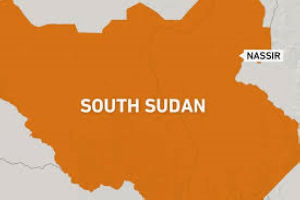Farming activities across the nation are receiving a big push from the Australia government, to guarantee food security and reduce poverty.
This follows a 1.2-million-dollar deal clinched by the Australian High Commission and the Ministry of Food and Agriculture, to train agricultural extension officers and supervisors on contemporary agricultural extension service delivery methods, agri-business and farm management.
Speaking at a training event for 40 officers at Dodowa on Thursday, Ms Joanna Adamson, Australia High Commissioner in Ghana, urged farmers to see farming as a business to make money, reduce poverty and increase food security.
Under the project, the Australian-funded Farmer-Based Capacity Development, Australia has trained nearly 600 agricultural extension personnel in the 10 regions over the last 12 months, thus bringing the figure to 1,200 trained officers.
Ms Adamson said she was pleased about the commitment of the ministry towards the project, and the enthusiasm of the extension agents, who were ready to apply their newly acquired knowledge on the field.
Dr Kwame Amezah, Director of Extension Services, decried the dwindling number of staff, and the fast ageing of a number of them, and said government freeze on recruitment and promotion, does not allow replacement.
He said to be in tune with modern technology, the staff on the field requires smart phones, laptops and iPad to work with. He added: “but MoFA has already given out some iPads to regional extension officers.”
Dr Amezah said owing to the declining number of extension officers, his outfit has resorted to using the media, mobile phones and farmer-based groups to deliver extension services to a large segment of farmers.
Dr Ahmed Yakubu Alhassan, Deputy Minister of Food and Agriculture responsible for Crops, expressed reservation that FBOs generate about 80 per cent of Ghana’s products, but unfortunately have to compete with sophisticated players on the world market.
“It is extremely important to get farmers out of routine work activities, to deliver best extension services to produce more output of greater quality, while improving upon the environment,” he said.
Participants called for a well-planned crop calendar and budget to properly forecast the time for planting specific crops.
Business News of Friday, 6 June 2014
Source: GNA













